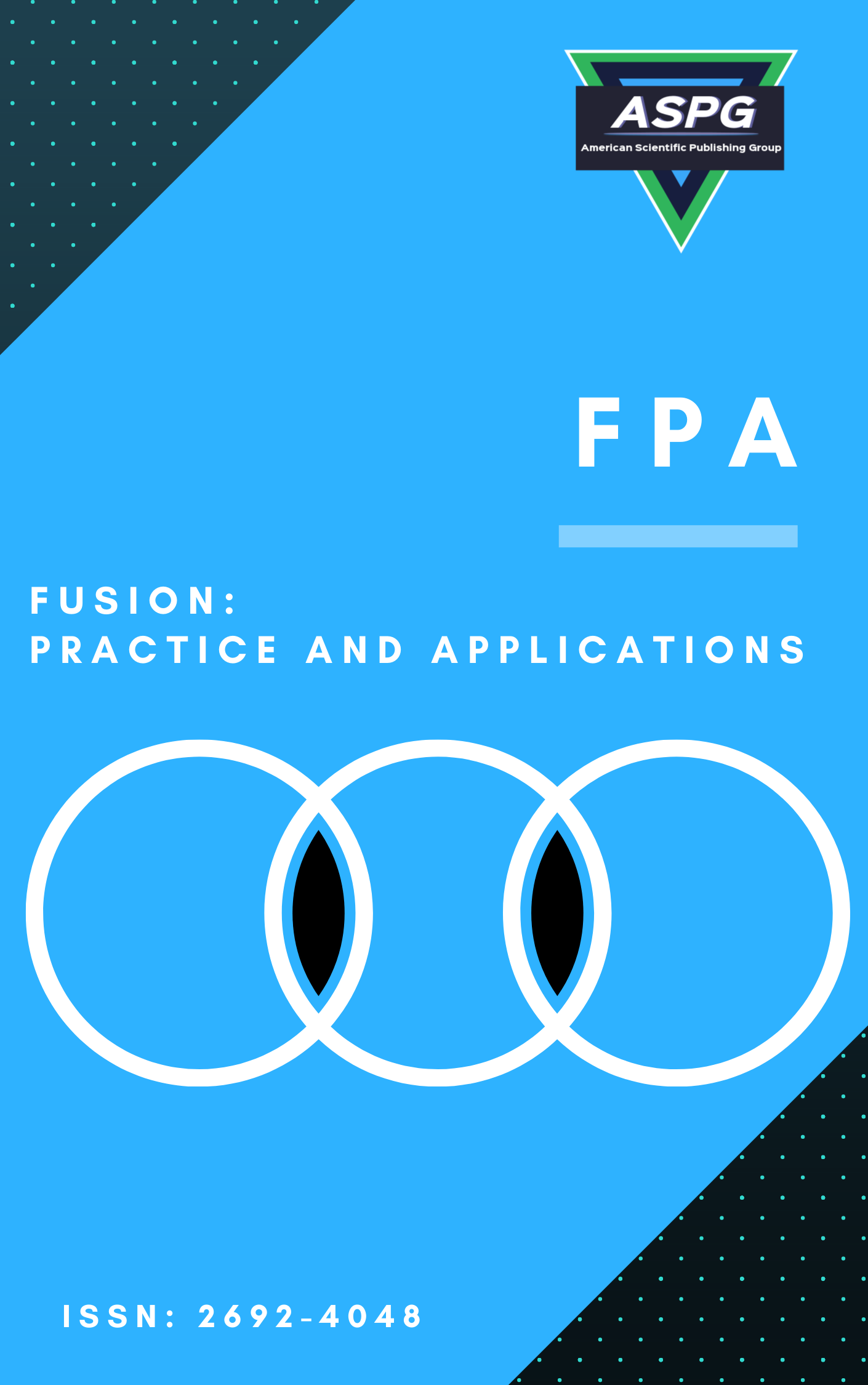

Volume 17 , Issue 2 , PP: 356-365, 2025 | Cite this article as | XML | Html | PDF | Full Length Article
Maha A. Al-Bayati 1 *
Doi: https://doi.org/10.54216/FPA.170226
Artificial intelligence techniques including deep learning play a major role in all fields and in line with the advancement in technology. Handwritten digit recognition is an important issue in the field of computer vision, which is used in wide applications such as optical character recognition and handwritten digits. In the current research, we describe a unique deep learning technique that uses a Convolutional Neural Network (CNN) framework with better normalization algorithms and adjusted hyperparameters for improved efficiency as well as generalize. Contrasting conventional techniques, our methodology concentrates on minimizing overfitting through the use of adjustable rate of abandonment and innovative pooling procedures, resulting in greater accuracy in handwriting number classification. Following considerable research, the recommended approach obtains an outstanding classification accuracy of 99.03%, proving its ability to recognize intricate structures in handwritten numbers. The approach's usefulness is reinforced by a complete review of measures including recall, accuracy, F1 score, as well as confuse matrix assessment, which show improvements throughout all digit categories. . The results of the investigation highlight the innovative conceptual layout and optimization methodologies used, representing a substantial leap in the realm of number identification.
Deep Learning , CNN , Handwritten , Artificial Intelligence
[1] Ramzan, M., Khan, H. U., Awan, S. M., Akhtar, W., Ilyas, M., Mahmood, A., & Zamir, A. (2018). A survey on using neural network based algorithms for hand written digit recognition. International Journal of Advanced Computer Science and Applications, 9(9).
[2] .H. U. Khan, A. Daud, U. Ishfaq, T. Amjad, N. Aljohani, R. A. Abbasi, and J. S. Alowibdi, "Modelling to identify influential bloggers in the blogosphere: A survey," Computers in Human Behavior, vol. 68, pp. 64-82, 2017.
[3] .R. Khan, H. U. Khan, M. S. Faisal, K. Iqbal, and M. S. I. Malik, "An Analysis of Twitter users of Pakistan," International Journal of Computer Science and Information Security, vol. 14, p. 855, 2016.
[4] .Szeliski, R. (2022). Computer vision: algorithms and applications. Springer Nature.
[5] .Voulodimos, A., Doulamis, N., Doulamis, A., & Protopapadakis, E. (2018). Deep learning for computer vision: A brief review. Computational intelligence and neuroscience, 2018(1), 7068349.
[6] .Kattenborn, T., Leitloff, J., Schiefer, F., & Hinz, S. (2021). Review on Convolutional Neural Networks (CNN) in vegetation remote sensing. ISPRS journal of photogrammetry and remote sensing, 173, 24-49.
[7] .Li, Z., Liu, F., Yang, W., Peng, S., & Zhou, J. (2021). A survey of convolutional neural networks: analysis, applications, and prospects. IEEE transactions on neural networks and learning systems, 33(12), 6999-7019.
[8] .Chauhan, R., Ghanshala, K. K., & Joshi, R. C. (2018, December). Convolutional neural network (CNN) for image detection and recognition. In 2018 first international conference on secure cyber computing and communication (ICSCCC) (pp. 278-282). IEEE.
[9] .Deng, L. (2012). The mnist database of handwritten digit images for machine learning research [best of the web]. IEEE signal processing magazine, 29(6), 141-142.
[10] .Redmon, J., Divvala, S., Girshick, R., & Farhadi, A. (2016). You Only Look Once: Unified, Real-Time Object Detection. Proceedings of the IEEE Conference on Computer Vision and Pattern Recognition (CVPR), 779-788.
[11] .Ronneberger, O., Fischer, P., & Becker, A. (2015). U-Net: Convolutional Networks for Biomedical Image Segmentation. Medical Image Computing and Computer-Assisted Intervention (MICCAI), 234-241.
[12] Tran, D., Bourdev, L., Fergus, R., et al. (2015). Learning Spatiotemporal Features with 3D Convolutional Networks. Proceedings of the IEEE International Conference on Computer Vision (ICCV), 4489-4497.
[13] Yoon, J., Kim, K., & Kim, J. (2017). Text Classification with CNNs and Attention Mechanism. Proceedings of the 2017 Conference on Empirical Methods in Natural Language Processing, 1953-1962.
[14] .K. Kancharla, V. Kamble and M. Kapoor, "Handwritten Signature Recognition: A Convolutional Neural Network Approach," 2018 International Conference on Advanced Computation and Telecommunication (ICACAT), Bhopal, India, 2018, pp. 1-5, doi: 10.1109/ICACAT.2018.8933575
[15] .A. Shrivastava, I. Jaggi, S. Gupta and D. Gupta, "Handwritten Digit Recognition Using Machine Learning: A Review," 2019 2nd International Conference on Power Energy, Environment and Intelligent Control (PEEIC), Greater Noida, India, 2019, pp. 322-326, doi: 10.1109/PEEIC47157.2019.8976601.
[16] .Mukhoti, J., Dutta, S., & Sarkar, R. (2020). Handwritten digit classification in Bangla and Hindi using deep learning. Applied Artificial Intelligence, 34(14), 1074-1099.
[17] .Pashine, S., Dixit, R., & Kushwah, R. (2021). Handwritten digit recognition using machine and deep learning algorithms. arXiv preprint arXiv:2106.12614.
[18] .Sharma, M., Sindal, P. S., & Baskar, M. (2023). Handwritten digit recognition using machine learning. In Proceedings of Data Analytics and Management: ICDAM 2022 (pp. 31-43). Singapore: Springer Nature Singapore.
[19] Yang, S. (2024, September). Analysis of two handwritten digit recognition methods based on neural network. In Fourth International Conference on Computer Vision and Pattern Analysis (ICCPA 2024) (Vol. 13256, pp. 247-252). SPIE.
[20] Hamed, W.S., Hussein, K.Q., Prediction system for distribution wind speed using deep learning algorithm, AIP Conference Proceedings,2023, 2820, 030008